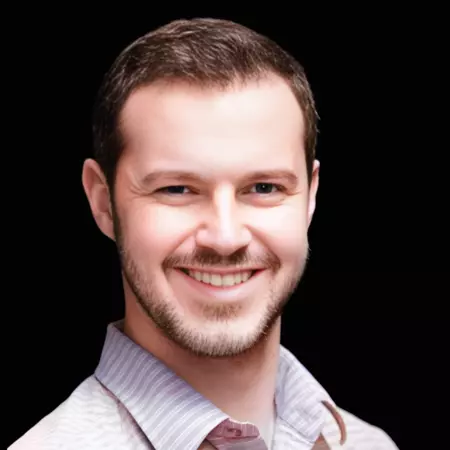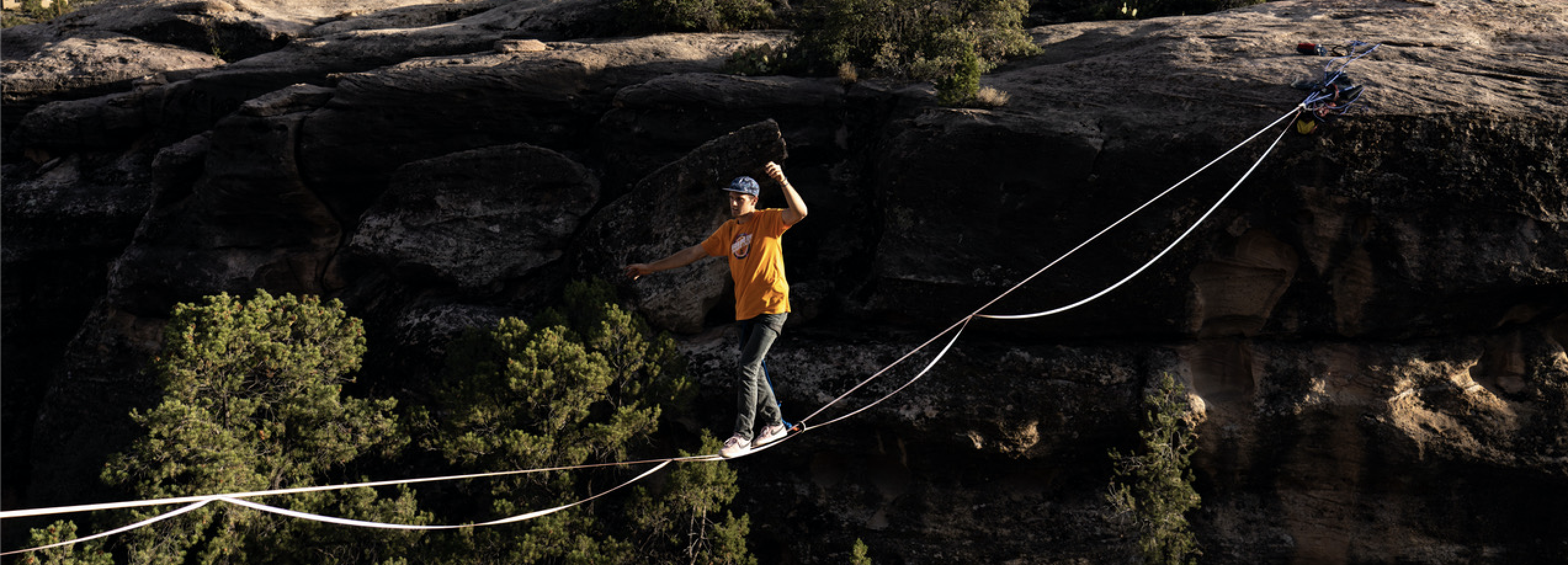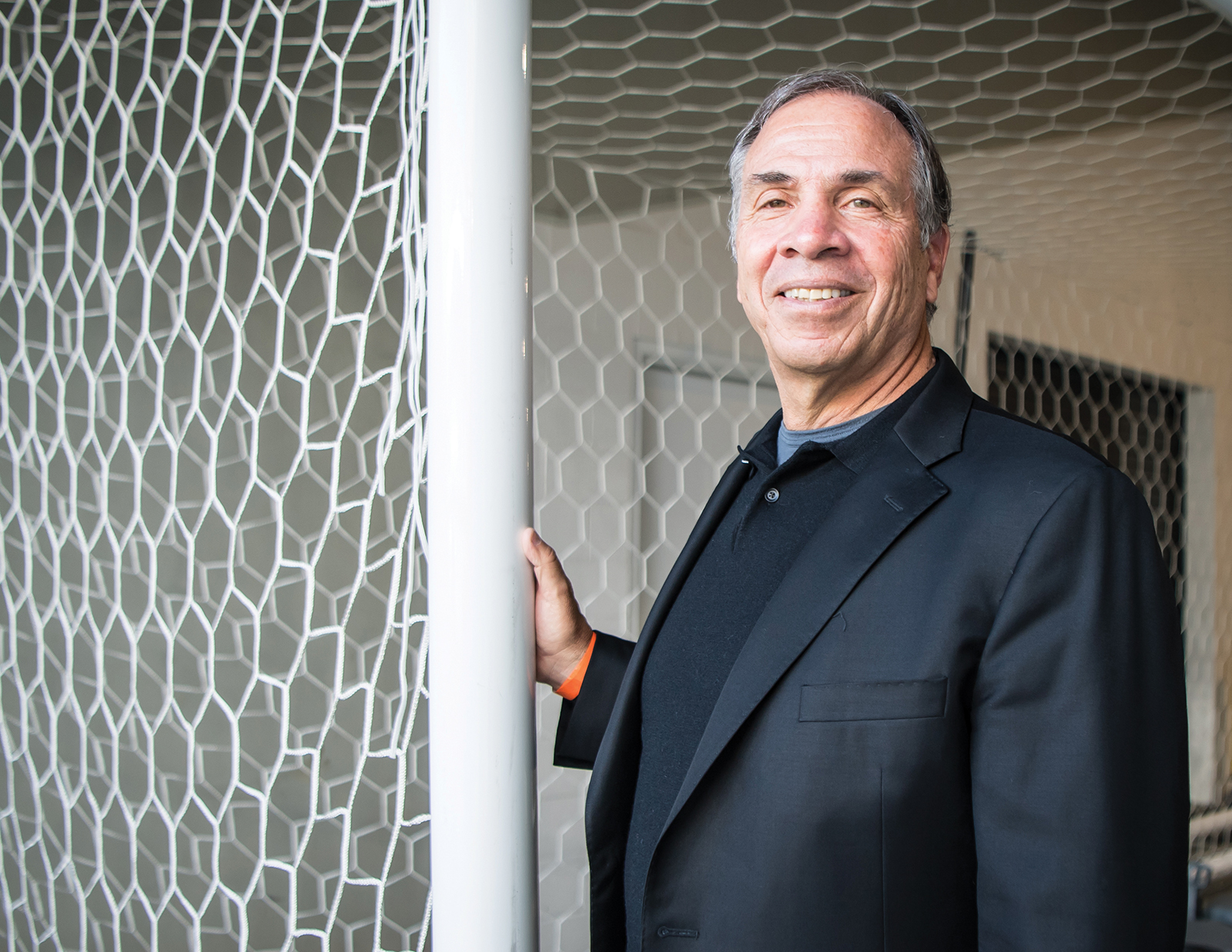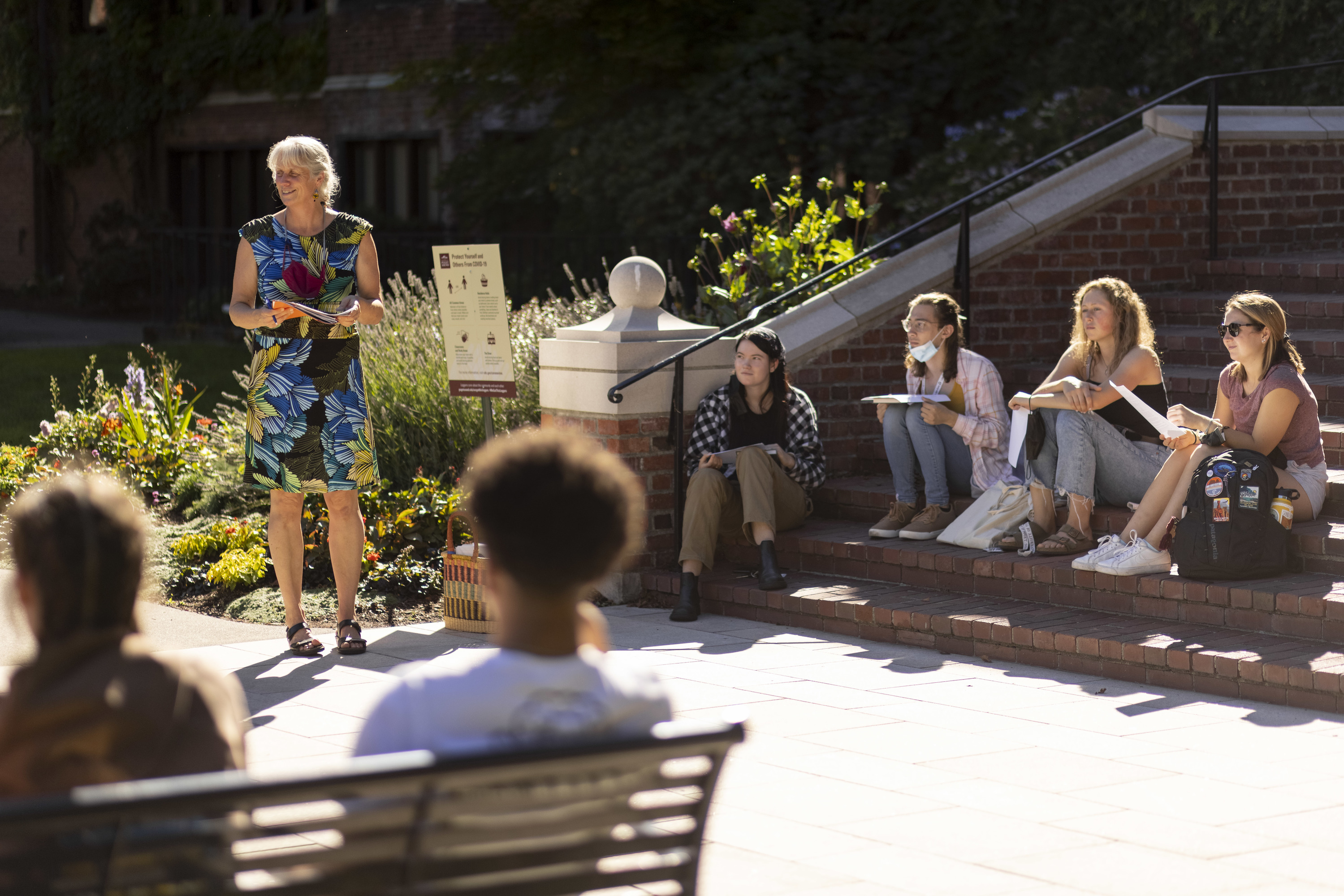Peter Bittner helps creative professionals use emerging technologies to elevate their work
Peter Bittner ’12 didn’t set out to become an A.I. expert when he first set foot on campus at the University of Puget Sound. As an International Political Economy major with a minor in Spanish, he was initially drawn to international affairs. However, a passion for storytelling and a detour into freelance journalism led him to become well-versed in the capabilities of artificial intelligence—and gives him a unique insight into how the technology is upending the media landscape.
“Puget Sound provided a fantastic foundation for what I'm doing today,” Bittner says. “Without the critical thinking skills, the research experience, and the communication skills I learned as an undergrad, I don't think I would’ve embarked upon the path to being an entrepreneur.”

While at Puget Sound, Bittner had the opportunity to study abroad, opening his eyes to new cultures and ways of thinking. His experiences in Spain and later spending time in Asia as part of the PacRim program helped spark a love of exploration and travel. After graduating in 2012, Bittner joined AmeriCorps and then pursued a Fulbright English Teaching Assistantship in Mongolia, where he lived for nearly a year. It was during this time that his interest in storytelling solidified. He began sharing his experiences on a personal blog, picked up photography, and freelanced for various publications, including Arches, Puget Sound’s alumni magazine, and taking photos that have appeared on the front page of The New York Times.
“I realized I liked this storytelling thing,” Bittner says. “I wanted to find a way to do it, journalistically, at a higher level.”
That led him to the University of California, Berkeley, where he earned a master’s degree in New Media Journalism. During his graduate program, Bittner began experimenting with emerging technologies like drone videography and virtual reality, but it wasn’t until he started teaching a class called ‘The Future of Visual Storytelling’ that he was first introduced to artificial intelligence in the context of media and storytelling.
“The tools were so unimpressive at the time, but I still included them in the course,” Bittner recalls. “Since then, everything has changed.”
Over the years, Bittner has kept a close eye on the evolution of A.I. He started to experiment with a tool called DALL-E, which generates images from text prompts, and while he wasn’t impressed by the nascent technology, he saw how quickly A.I. tools were improving and saw the potential for A.I.-generated images to eventually replace stock photography.
The watershed moment came with the release of ChatGPT in late 2022. Until then, it was a niche interest with few practical applications. Then, overnight, A.I. was dominating the public conversation.
“My phone blew up with people asking, ‘Have you tried this yet?’ And I started using it immediately. It was clear to me that this was a tipping point for A.I.”
It was a turning point in Bittner’s professional life, too. He saw the need for someone who could teach professional storytellers, like journalists and marketers, how to harness the power of A.I. So, he started his own business, The Upgrade, which offers consulting services and educational resources as well as a newsletter, podcast, and YouTube channel aimed at demystifying A.I. for creatives. He’s also partnering directly with A.I. companies to lead their product education and certification efforts.
“I see my job as helping people cut through the noise, understand where this technology is headed, and use it in a way that’s meaningful and ethical,” Bittner says. “There’s a popular quote that says, ‘You may not be replaced by A.I., but you may be replaced by someone who uses A.I. more effectively than you,’ and I think that’s true. For those willing to learn, these tools can elevate your work and make you more productive.”
Bittner credits his entrepreneurial spirit to the liberal arts education he received at Puget Sound. While artificial intelligence’s rapid development has sparked concerns about the future of jobs in the creative sector, he remains optimistic that Loggers will always have the skills to be competitive in a rapidly changing labor market.
“Automation is both a threat and an opportunity—if you can stay ahead of the curve,” Bittner says. “The university gave me skills that are relevant no matter what field I’m in. I never would have started my business without first making the best decision of my life, which was going to the University of Puget Sound.”










